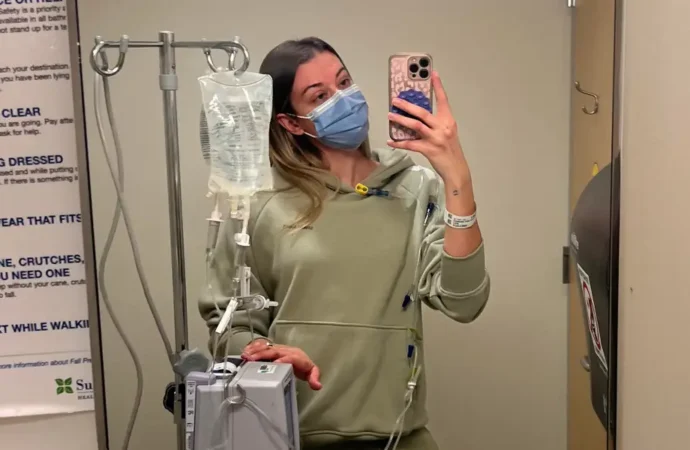At the tender age of 26, Shannin Desroches faced a life-altering diagnosis—stage 4 colon cancer. This unexpected and devastating news came after a series of frustrating misdiagnoses and delays that highlight a critical issue in modern healthcare: the importance of early and accurate detection in cancer treatment, particularly for young individuals. Why is Early Detection
At the tender age of 26, Shannin Desroches faced a life-altering diagnosis—stage 4 colon cancer. This unexpected and devastating news came after a series of frustrating misdiagnoses and delays that highlight a critical issue in modern healthcare: the importance of early and accurate detection in cancer treatment, particularly for young individuals.
Why is Early Detection Crucial?
Early detection of cancer is essential because it significantly increases the chances of successful treatment and recovery. When cancer is identified at an early stage, it is often smaller, hasn’t spread, and is easier to treat. For cancers such as colon cancer, which can progress rapidly, timely diagnosis can mean the difference between a curable stage 2 or 3 and an advanced stage 4, which is often more challenging to manage.
Recognizing the Signs: What to Look Out For
Understanding the symptoms of colorectal cancer is vital for early intervention. Common symptoms include persistent abdominal pain, changes in bowel habits such as pencil-thin stools, unexplained weight loss, and frequent constipation. In Shannin’s case, despite maintaining a healthy lifestyle, she experienced extreme abdominal discomfort and pain, symptoms initially dismissed as a gluten allergy.
The key takeaway is that persistent symptoms, regardless of lifestyle and age, warrant thorough investigation. Young individuals, particularly, should not be overlooked or dismissed based on age alone.
The Role of Health Screenings
Current guidelines recommend routine screenings for colorectal cancer starting at age 45 for individuals at average risk. However, there is a growing consensus among health professionals that these guidelines may need re-evaluation given the rising incidence of colorectal cancer in younger populations. Screenings such as colonoscopies are invaluable in detecting precancerous polyps and early-stage cancer, potentially saving lives by enabling early treatment.
Shannin’s experience underscores the need for more accessible screening options and the importance of advocating for one’s health. Her journey through a lengthy diagnosis process highlights the limitations within healthcare systems, where procedural delays can exacerbate health crises.
Navigating Treatment: The Challenges and Options
Once diagnosed, Shannin embarked on a challenging treatment journey, opting for a combination of immunotherapy and chemotherapy. Immunotherapy, a cutting-edge treatment that empowers the immune system to fight cancer, is showing promise, especially when traditional chemotherapy encounters obstacles, such as allergic reactions. Her resilience in exploring various treatment options, despite financial and logistical barriers, is a testament to the complexities patients face.
This scenario advocates for a more patient-centered approach in healthcare, ensuring that individuals have access to the full spectrum of treatment options, regardless of geographic and economic constraints.
Looking Forward: Hope and Advocacy
As Shannin and her family look towards the future, their story is a sobering reminder of the unpredictability of life and the resilience of the human spirit. Her current focus on fertility preservation and future family planning amidst battling cancer is both hopeful and inspiring.
It is crucial for healthcare systems to adapt to the changing demographics of cancer patients. Advocating for policy changes that support increased access to early screenings and broadening the age range for routine check-ups is essential in combating rising cancer rates among younger populations.
In conclusion, Shannin Desroches’ journey is not just a personal battle but a clarion call for systemic change. Her story highlights the critical need for early detection, increased awareness of colorectal cancer symptoms, and the importance of advocating for one’s health. It serves as a poignant reminder to healthcare professionals and policymakers alike to prioritize preventive measures and ensure that no individual, regardless of age, slips through the cracks of the healthcare system.







